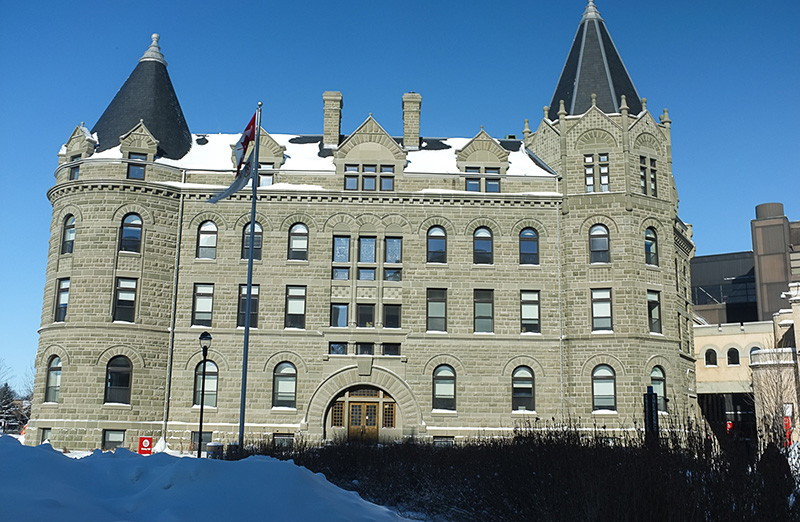U of W pension commitments experience unprecedented increase
Assumptions made by previous administrations take toll on 2012-2013 budget
The University of Winnipeg’s pension commitments have increased by an unprecedented $3 million this year.
According to U of W administration, the soaring costs come from a number of incorrect assumptions and the resulting decisions made in previous years by past administrators.
Pension legislation requires the university to have a defined benefit plan that is evaluated every three years.
According to Michael Emslie, associate vice-president of finance and operations, the last evaluation in December 2010 took into account the unfavourable market environment of previous years but did not account for three important factors.
“First is the life span of plan members,” said Emslie. “People are living longer than the actuaries had assumed.”
Compounding that, Emslie maintains that people who work at universities - in any capacity, professor or otherwise - tend to live longer than other retirees. Previous actuaries did not account for this and assumed the university would be paying each retiree for a number of years less than it has been, he said.
Lastly, changes to the Manitoba Pension Act in 2010 have influenced the inflation of the university’s pension commitments, Emslie said.
Changes included greater pension benefit security and improved family provisions giving spouses and common-law partners of retirees increased protections, including a guaranteed minimum retirement income.
The expense will undoubtedly affect the university’s operations, Emslie said.
“It’s about two-and-a-half to three per cent of the university’s budget, which is tight to start with,” he said. “Anything that’s going to add an expense will have an impact everywhere else.”
It remains to be seen what impacts the increased expenses will have.
“It’s difficult to say that $3 million over here means $3 million less over there,” Emslie said.
According to Emslie, the budgeting process includes looking at the university’s funds as one large sum and discovering where the institution’s needs lie through discussions with various deans and managers.
Last year, the university passed a deficit budget, but Emslie is confident the university will not have to do so again. However, he does acknowledge that the university’s assets are not growing at a rate of five or six per cent as expected by the actuaries.
“ People are living longer than the actuaries had assumed.
Michael Emslie, associate vice-president of finance and operations, University of Winnipeg
“Until we can rely on achieving those goals of five to six percent, like they assumed, we’ll still have to look at ways of reducing costs,” he said.
In the U of W’s Trusteed Pension Plan, the Board of Trustees is responsible for managing the assets of the pension fund, which include cash, shares, bonds, securities, investments and other properties received by the board to fund the plan.
In July, the U of W said in a press release that the 2012-2013 budget balances before inclusion of the increased pension expense.
Since then, the U of W has engaged with the Council on Post-Secondary Education (COPSE) to develop a plan to cover the cost.
According to Sally Housser, a press secretary at the provincial government, the plan allowed the university to run a deficit by providing a loan guarantee.
She also told The Uniter that the U of W’s situation is not unique.
“Universities across the country have had similar issues due to the downturn in the economy and increased life expectancy.”
Over the past year, the university’s salary expenses have also increased by $3.5 million, as defined by collective agreements.
The university has further expanded its aggressive vacancy management strategy beyond $4 million.
Although the expansion was not a direct result of increased pension commitments, the strategy involves leaving open job positions unfilled in order to keep costs down.
Published in Volume 67, Number 19 of The Uniter (February 7, 2013)







